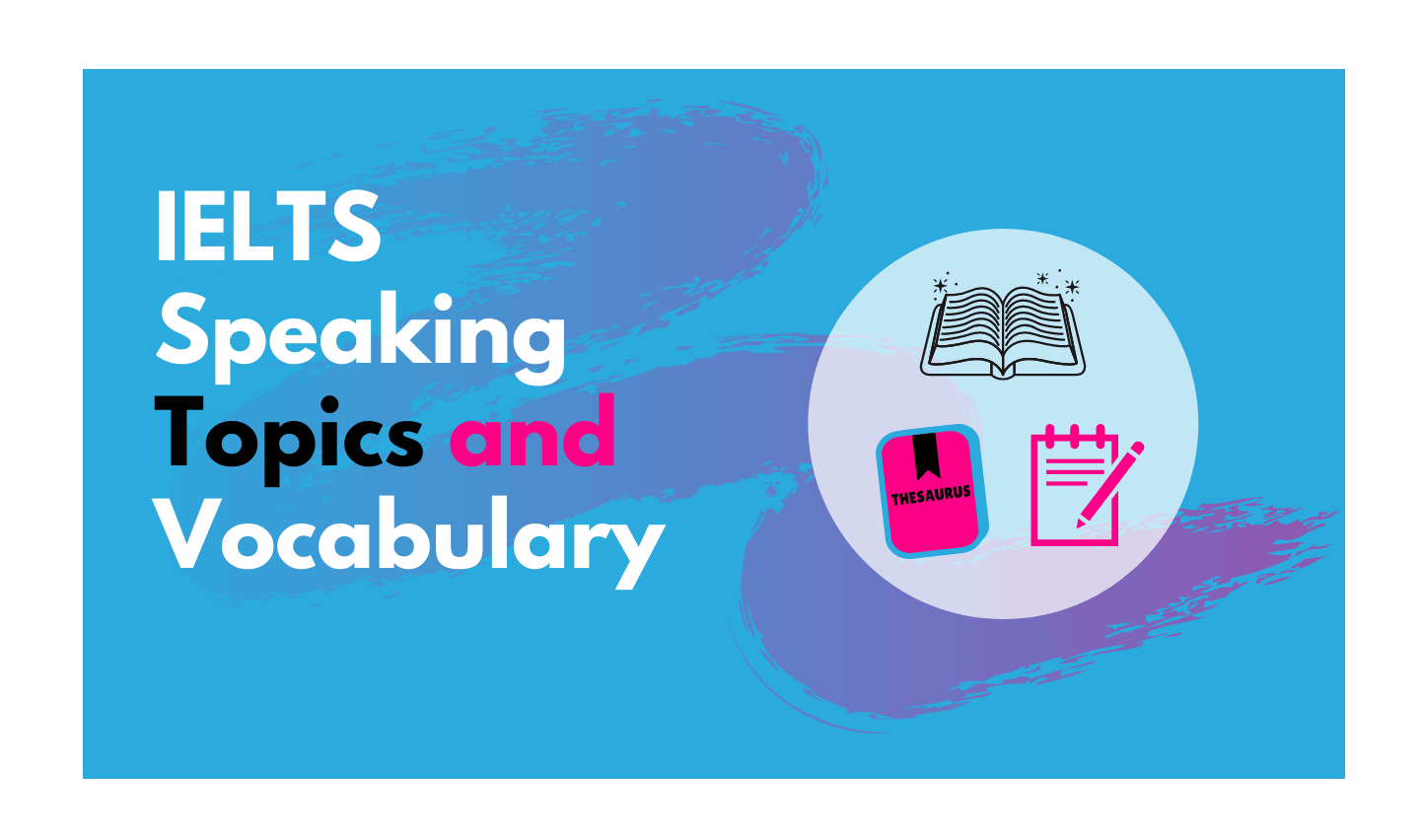Are you looking to improve your communication skills and ace the IELTS speaking test? Look no further! In this blog post, we’ll explore some of the most common speaking topics that appear on the IELTS exam. By familiarizing yourself with these topics and practicing your responses, you can boost your confidence and fluency in English. So let’s dive in and discover how to enhance your communication skills with these essential IELTS speaking topics!
What is IELTS?
IELTS is the International English Language Testing System. It assesses your ability to communicate in English in an academic context. IELTS is widely recognized by universities, employers, professional bodies, and governments around the world. IELTS is the most popular high-stakes English language test for study, work, and migration, with over 3 million tests taken in the past year.
IELTS is jointly owned by British Council, IDP: IELTS Australia, and Cambridge Assessment English.
What is IELTS Speaking Test?
The IELTS Speaking test is a face-to-face interview with a certified examiner. It is designed to assess your English speaking skills. The test is divided into three sections: Part 1, Part 2, and Part 3.
-
Part 1 of the IELTS
The speaking test lasts for about 4-5 minutes. The examiner will ask you general questions about yourself and your life to get to know you better.
-
Part 2 of the IELTS
The speaking test lasts for about 3-4 minutes. You will be given a card with a topic on it, and you will have one minute to prepare before speaking for two minutes about the topic.
-
Part 3 of the IELTS
The speaking test lasts for about 4-5 minutes. The examiner will ask you further questions related to the topic in Part 2, and these questions will be more challenging.
Common IELTS Speaking Topics
IELTS, or the International English Language Testing System, is an international standardized test of English language proficiency for non-native English speakers. The test is divided into four sections:
listening, reading, writing, and speaking. The speaking section is further divided into three parts.
- In part one, candidates are asked questions about themselves and their daily lives.
- In part two, candidates are given a task card with a topic and asked to speak for two minutes on that topic.
- In part three, candidates are asked follow-up questions related to the topic in part two.
There are a variety of topics that can appear on the IELTS speaking test. However, there are some topics that are more common than others. Here are some of the most common English speaking topics for beginners:
-Your Hometown
-Your work or studies
-Your free time and hobbies
-Food and drink
-Clothes
-Weather and climate
-Transport
-Holidays
These ielts English speaking topics tend to come up often on the IELTS speaking test because they are general topics that can be applied to almost any situation. However, that doesn’t mean that you should only prepare for these topics. It’s important to be prepared for anything that could come up on the test.
Tips for Preparing and Practicing for IELTS Speaking
To ensure you are thoroughly prepared for the IELTS Speaking test, it is important to describe your favourite subject with the types of questions that will be asked and to practice responding to them. Here are some tips to help you prepare:
- Familiarize yourself with the question types that will be asked in the IELTS Speaking test. There are three parts to the test, and each part focuses on a different type of question.
- In Part 1, you will be asked general questions about yourself and your daily life.
- In Part 2, you will be given a topic and asked to speak for two minutes on that topic.
- In Part 3, you will have a discussion with the examiner on topics related to the topic in Part 2.
- Practice responding to each type of question. As you familiarize yourself with the question types, take some time to practice responding to them. This will help you feel more comfortable and confident when it comes time to take the actual test.
- Make sure you are well-prepared for Part 2 of the test. This is where you will be given a topic and asked to speak for two minutes on that topic. It is important that you are able to effectively communicate your ideas within the allotted time frame. To prepare for this part of the test, brainstorm possible topics beforehand and practice talking about them out loud.
Strategies for Answering IELTS Speaking Questions
There are a few things to keep in mind when preparing for the IELTS Speaking test.
- First, make sure you have a good understanding of the question and what is being asked of you. It is important to be able to answer the question fully and accurately.
- Secondly, try to relax and be yourself during the test. The more natural and relaxed you sound, the better your chances of getting a high score. Finally, speak clearly and at a moderate pace so that the examiner can understand you.
Here are some tips on how to answer common IELTS Speaking questions:
- When asked about your hobbies or interests, talk about something that you are passionate about. Try to be specific and give examples where possible.
- When asked about your hometown or country, describe what it is like and what you like most about it. Again, try to be specific with your answers.
- When asked about your studies or work, give an overview of what you do and why you enjoy it. Be sure to include any relevant details that may help boost your score.
- When asked about global issues or problems, think about which ones are most important to you and why. Be prepared to discuss both sides of the issue and offer possible solutions.
Sample Questions with Answers
-
What are some common IELTS speaking topics?
There are many topics that come up frequently on the IELTS speaking exam. Here are some of the most common:
- Yourself: your name, where you come from, what you do, your hobbies and interests, etc.
- Your family: your parents, siblings, extended family, etc.
- Your home: where you live, your accommodation, your neighborhood, etc.
- Education: your schooling, any qualifications you have or are working towards, your views on education, etc.
- Work: your current or past job, your career goals, what you like and don’t like about work/your job, etc.
- Free time: how you spend your free time, plans for future leisure time activities, etc.
- Travel: places you have been to or would like to visit in the future; reasons for travel; travel experiences; difficulties faced when traveling; whether you prefer to travel alone or with others; etc.
- The weather: talking about the weather in different places; discussing whether you like particular weather conditions; complaining about the weather; making small talk about the weather; etc.
How to Practice Your English Communication Skills?
If you’re looking to improve your English communication skills, there are a number of things you can do. Here are a few tips:
- Get plenty of speaking practice. The more you speak, the better you’ll become at communicating in English. There are a number of ways to get speaking practice, such as joining an English conversation group, taking an English class, or practicing with a friend or family member.
- Listen to native English speakers. One way to get better at understanding and using English is to listen to native speakers as often as possible. You can find native speakers online, on television, or in person. Pay attention to how they use words and phrases, and try to imitate their speech patterns.
- Read aloud in English. Reading aloud is a great way to improve your pronunciation and fluency. Find articles or books that interest you, and read them aloud. As you read, pay attention to how the words sound and what stresses are placed on certain syllables.
- Write in English. Writing can help you practice using proper grammar and vocabulary. Keep a journal in English, or write short stories or essays on topics that interest you. Again, pay attention to your grammar and spelling as you write.
Why Choose us?
If you are looking for ielts classes, spoken English, foreign language, or kids courses National Institute of Language is the best option for you. We offer the best online IELTS coaching in India. With the help of these common IELTS speaking topics, you can easily enhance your communication skills. From discussing family traditions to talking about new technologies and current affairs, this list has a wide range of topics that have been designed to give you a better understanding of English language proficiency. Additionally, by practicing these topics on a regular basis, you will become more confident in your ability to communicate effectively when taking an IELTS test.









Responses